Brokers
How One Broker Moved from One-Man Home Office to 23 Person Shop
January 7, 2019Zach Ramirez started the brokerage company ZR Consulting from his home in Orange County, CA in June 2018. He was generating leads and making phone calls, often in a hushed voice because he was also looking after his six month old daughter.
“That was difficult, having a baby and with my life savings in the business,” Ramirez said.
But he had three brokers working remotely for him and things were working pretty smoothly. That number was growing by the time deBanked profiled him in August.
His fledgling business was manageable until he got to six brokers. At this point, the 29 year-old Ramirez said his home office was starting to feel like a call center.
“All day, I was answering calls to help them,” Ramirez said. “‘Zach, I have a question about this merchant, Zach, can you help me close this deal?’ It gave me a ton of anxiety.”
Ramirez realized that it would be much easier to manage employees from a brick and mortar space. So he found the company an office.
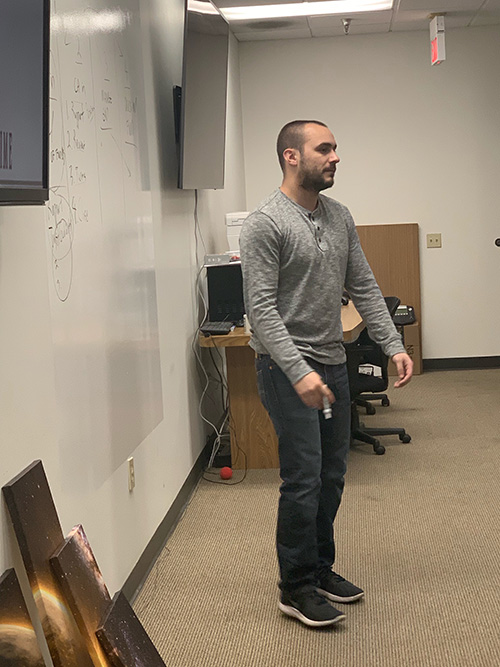 “Technically, we could have stayed at home,” Ramirez said.
“Technically, we could have stayed at home,” Ramirez said.
And he acknowledges that some brokers can make a nice living working from home.
“But I want to have the biggest ISO,” Ramirez said.
With this as his goal, he said it makes the most sense to have everyone under one roof. If he’s having a large meeting, he wants to know that everyone is paying attention and not driving or playing a video game as they could on a conference call.
“It was difficult to manage salespeople and to track everything, like how many leads we generated in one day? How many leads does it take for me to fund one deal? How much money does the average deal bring me?”
Having his brokers work remotely made keeping track of these numbers even harder. Ramirez still has a couple of people who work for him remotely, but he said that 95% of his employees, or 23 people, now work at their office in Anaheim, CA. Ramirez said that the office was much too big for them with just six people at the beginning.
“We could hear echoes bouncing off the walls,” he recalled.
But now with 23 people, mostly brokers and some support staff, Ramirez is actually planning to expand into an office next door.
“[As we grew in the office,] we just re-invested every penny we earned back into the company,” Ramirez said. “We upgraded our computers and furniture and we put people on W-2s. We gave our employees a 401k right away. I think it’s important to really treat your people right.”
Ramirez acknowledged that he can’t make changes to the business as quickly as he used to. With more than 20 people, he said that costs go up dramatically and therefore decisions have to be much more calculated.
“It takes time to move the ship,” Ramirez said, “and if you’re not careful, everyday can be consumed by the small stuff.”
That’s why he stresses the importance of delegating roles to others.
“It’s the only way to free up your time so you can focus on the bigger picture,” he said.
Now, he said that he very rarely speaks to funders anymore. He has two processors on staff whose job is to organize the paperwork from the brokers and send it to the funders. They organize the company pipeline, he said.
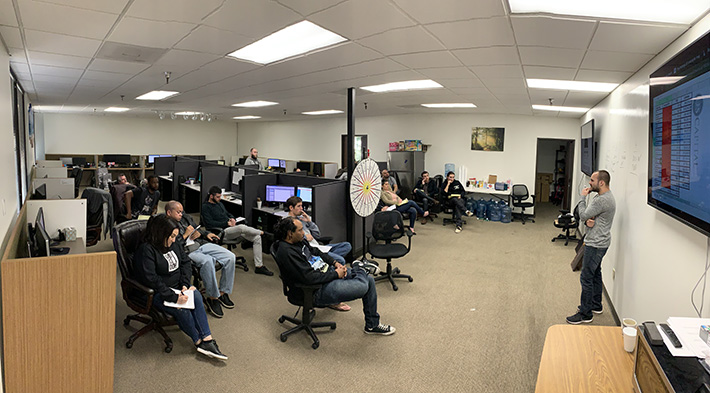
Ramirez said that it can be quite difficult to find the right mix of funders.
“Some funders who you think will be great turn out not to be and other funders who you’ve never heard of turn out to be real diamonds in the rough,” Ramirez said.
And like many brokers feel, Ramirez agrees that when it comes to funders, less is more.
“Having a very precise and small list of funders is incredibly important…because it simplifies your process [and] having a simple process is one of the keys to scaling your business,” Ramirez said.
Ramirez said that a common mistake brokers make is to test out a bunch of brokers all at once. He said that brokers need to try working with new funders intelligently, which means one at a time.
“When you bring on a new lender, you carefully watch every submission to them,” Ramirez said. “You want to make sure they’re not backdooring you. So usually you want to put your phone number and your email address in the contact info so you can catch them if they’re trying to be sneaky. [If they are,] they’ll call asking for the client and you know you only sent that deal to one lender.”
He’ll sometimes then pretend he’s interested and record the call. On about three occasions, he said that he has sent recordings like this to the backdooring lender and he’ll write “this is why I don’t send deals to you.”
Ramirez’s small group of trusted funders are OnDeck, National Funding, BFS, and Orange Advance.
As Ramirez expands, he says he only hires brokers by referral. He said that 90% of his business is short term business loans and MCAs, and 10% is SBA loans and real estate transactions.
Ramirez said that so far, ZR Consulting has originated $15 million in deals since inception and has earned $1.5 million in revenue.
For Some Brokers, Funding Never Sleeps
January 4, 2019 While holidays, including New Year’s Eve, are usually slow days for funding, for some brokers this year, New Year’s Eve was a strong day.
While holidays, including New Year’s Eve, are usually slow days for funding, for some brokers this year, New Year’s Eve was a strong day.
“New Year’s Eve was not a slow day here,” said Elana Kemp, a broker at Fundomate, in Los Angeles, who was in the office that day. “It was amusing to see so many people looking for money on the last day of the year. I’m also a procrastinator, so I can relate,” she said.
Zach Ramirez, Founder and Managing Director of ZR Consulting, LLC in Orange County, CA, said that New Year’s Eve was the second biggest funding day for his company in December, despite the fact he told his brokers that it was an optional work day, he said.
At the same time, for many other brokers, business was on the slow side, as expected. John Celifarco of Horizon Financial Group in Brooklyn, said it was a good day to organize and prepare for the new year. Meanwhile, Joe Cohen, of Business Finance Advance in Brooklyn, said he generally doesn’t go to work on major holidays.
“The holidays are to enjoy, regenerate and spend time with the family,” Cohen said. “That’s why you’re working anyway.”
The Broker: How Industry Veteran Joe Cohen Closes Deals and Dodges Backdooring
November 11, 2018Role: I’m the manager of Business Finance Advance in Brooklyn. I manage a team of about 20.
Years in the business: Since the beginning. 2005/2006.
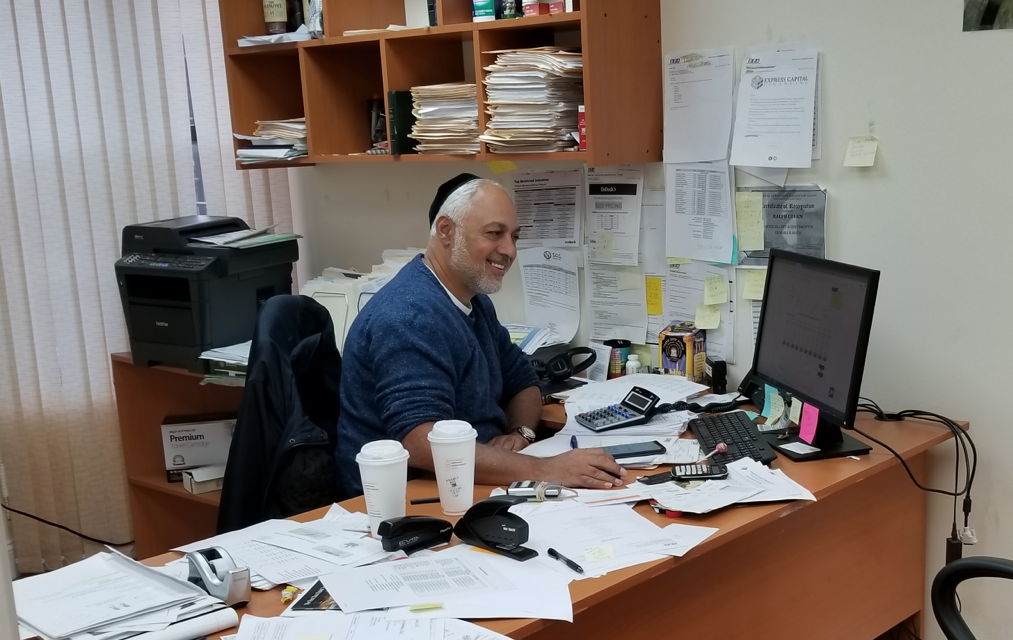 How he closes a deal:
How he closes a deal:
You have to really know the customer. You have to have a feel for what his needs are. Is his hot button the amount of money? Is it the term? Is it the rate? Is it all of the above? You have to know what the customer is looking for and try to hit a bullseye…I make sure that I know exactly what the customer wants before I make an offer.
What were your first deals like?
In those days, when we first started doing it, the hard part was just convincing the client that we were for real – actually willing to give him money – and not some fraudster trying to get a hold of his bank statements. And it was only based on credit card revenues at the time. We used to call them up, “Hi, Mr. Smith, do you accept credit cards?” “No.” We’d hang up the phone [because] we couldn’t do anything. There was no ACH program in those days.
Once we got the statements back, we’d just have to figure out how much we could give him based on his credit card sales…We never knew what a decline was in the early days. Everybody that sent in paperwork was approved, it was just a matter of how much money he was going to get approved for.
Biggest challenge as a broker:
The most challenging part of my job is the silent thief. When we send out deals to funders, not only do we have to worry about closing the deal…but when we send a file to some of the funders, either there’s someone at the funder that’s backdooring the deal or there’s a whole syndicate taking the deal and calling the merchant behind our back. That is the biggest challenge to [brokering] today…You’re going to make some deals and you’re going to lose some, but the biggest issue we have is the drama that’s been set up by the backdoor channels that are rampant throughout the industry.
Advice for newcomers:
You have to [understand] that it will take you a year, at least, before you start making any money because a) there’s a lot of people doing it, and b) you have a lot of [backdooring] and if you don’t understand the business, you’re going to get caught up with the wrong funders.
What are some funders you work with, who you trust?
Quarterspot. And CAN Capital and OnDeck. These are the ones that will not backdoor us.
What do you look for in a good broker?
A guy that basically is hardworking and tenacious. You can’t give up. It’s not an easy business. You’ve got to work very, very hard and you have to deal with the successes and compartmentalize the losses.
The Broker: How Andy Savarese Changes Collars and Closes Deals
October 12, 2018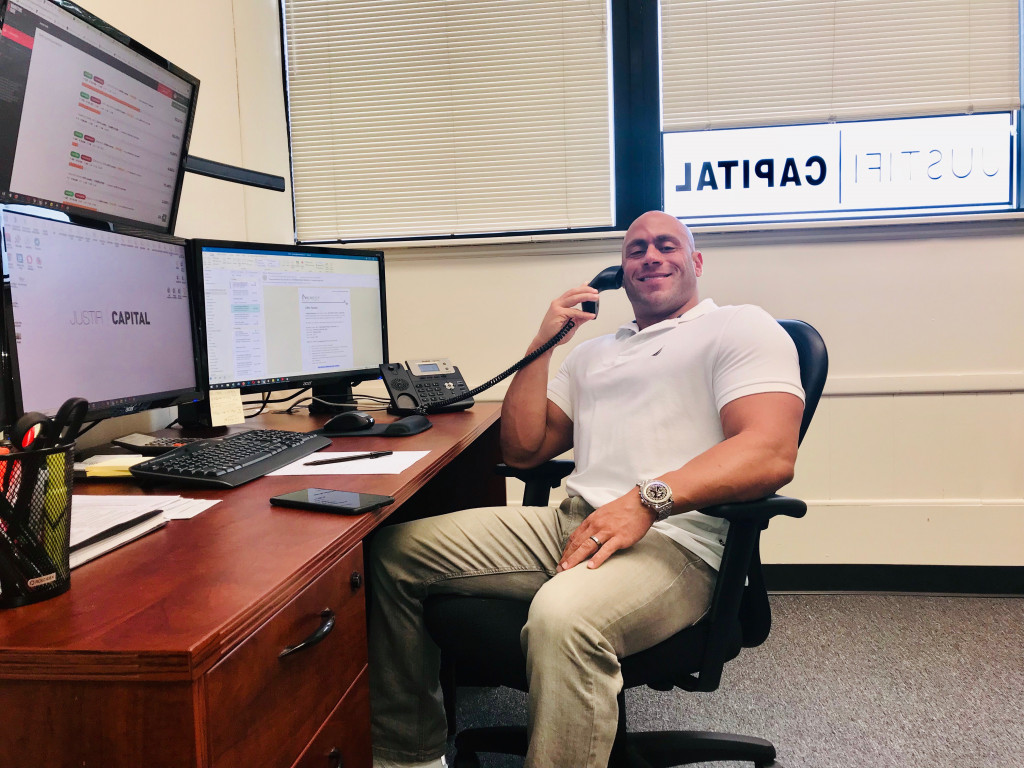 Title:
Title:
I’m the Managing Partner at JustiFi Capital, a brokerage in Farmingdale, Long Island. I started it September 2017 with my cousin, who’s the owner and my best friend. We do mostly MCA, but also some term loans.
His schedule:
I have a part-time/full-time job in the mornings. I work in sanitation for the town of Oyster Bay on Long Island. I typically wake up at around 3:37 a.m. I get into my yard at 4:15 a.m. and I go right into my route. My job is task completion. So the faster you work, the faster you get to go home. You get paid the same. I was fortunate to get on a fast truck, so I’m usually done between 7:45 a.m. and 9:30 a.m.
I go home, I take a quick shower, and I change my outfit. I go from blue collar to white collar. I get into the office around 10:30 a.m. and I start doing more of a mental hustle compared to a physical hustle.
At around 12:45 p.m., I take my lunch and I go to the gym for about 45 minutes. I get back to the office and I keep up the closing, the pitching, the selling, the prospecting. At around 5:30 p.m., I leave the office, I pick up my son from daycare, and since my wife works evenings, I take care of him at night until around 7:30 p.m., and get him ready for bed. The second he hits his crib, I hit my bed and I call it a day.
His background in the business:
About three years ago, I was driving oil trucks after sanitation, and my cousin, who is also my best friend, gave me a call. He knew I was breaking my butt all day. He had a friend that was starting his own ISO. So I did that for a year and I learned the industry. It didn’t really work out there, so I convinced my cousin to open up our own shop, which is JustiFi.
His process:
At JustiFi, we’ve been growing. We’re just grinding it out and things are going really well. We have four brokers and we keep it tight. We keep it small so that everybody is inundated with files and everybody’s making money and everybody’s happy. We don’t have any processors or chasers. We do it all on our own. We’re working the deal from beginning to end. My cousin has devised a pretty strategic marketing plan that inundates us with leads all day. I disperse them and I follow up with my guys and see how I can help. I overlook all of the closings and make sure that everything than can get worked is getting worked.
His biggest challenge as a broker:
A lot of people will say getting good leads and keeping your brokers happy. What I found is the most challenging part of being a broker in this industry is keeping a really level head and keeping your emotions out of the game. It’s a very tumultuous industry. One day, you could have 12 deals in the funding chute, the next day, your pipe could be dry. You could have a deal you think is going close and something happens on the funding call and it gets derailed. The point is that you’ve got to stay positive, you’ve got to stay confident, and you’ve got to roll with the punches. If not, you’re going to lose it and you’re going to get eaten alive. Because it’s a battlefield out there. You’ve got to keep your composure, no matter what the size of the deal. You’ve got to just keep pushing through. Because if not, you’re not going to make it.
His largest deal funded:
$250,000. And I made $38,000.
His advice for brokers:
When I go to close a good sized deal, or a tough deal, I don’t like to come off as a salesman. I’ll never do that. I’m going to come off as an advisor. I’m going to come off as a partner with you where I’m going to explain the ins and outs of the deal. I’m going to explain how it benefits you. I’ll never put on pressure or talk slang. I’m going to be a professional. You’ve got to kind of put yourself in [the merchant’s] shoes and you’ve got to see that it really makes sense for them. Because when it makes sense to you and it makes sense to them, you’re going to close the deal and you’re going to move forward.
But there are always deals that will never close, deals that you can’t sell. So you can’t be too hard on yourself. You’ve got to stay positive. You can’t beat yourself up if you don’t sell something. You’ve got to just do your best, stay neutral, and just talk to clients how you want to be talked to.
What he does to pump himself up for a deal:
If I know my day is bringing a big deal that I have to sell and I’m a little uneasy about it, I have an advantage. I’m on the back of a garbage truck all morning and I focus on what’s in store for me that day. If I have a big deal, I recite in my head [from the truck] how I’m going to report to my client. So when I get into the office, I dial up and I already know how the conversation is going to go. I have my rebuttals in my head, I have the direction, I have everything ready to go so that when I get on the call, I’m fully prepared.
Will you quit your morning job?
No. When my pension kicks in, I’ll leave. But I told myself the day I started this and the day I started seeing the return, “I’m never leaving sanitation. I won’t.” I made that promise to myself. There’s been days when I’ll have a five figure commission day and the next morning it’ll be pouring rain out, and I’ll say to myself, “Man, I just want to take the day off.” But no, I made a promise. I go in.
Why?
It keeps me grounded, it’s a stress relief. It’s what I am. It’s what I do.
The Broker: How Elana Kemp Turns Values into Value
September 26, 2018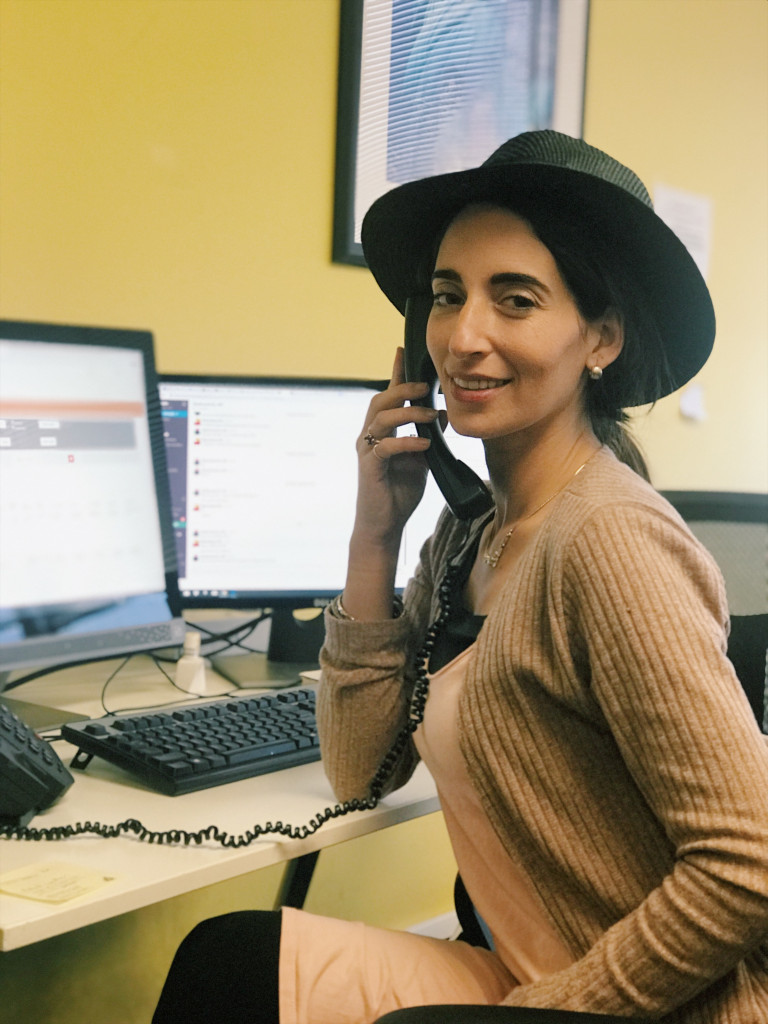 Title: Broker at Fundomate, a commercial finance brokerage in Los Angeles.
Title: Broker at Fundomate, a commercial finance brokerage in Los Angeles.
Background in business:
I started four years ago when I was living in Israel and I was working American hours. It was tough because I have four kids…A [non business] opportunity brought me to LA where my dad lives and where I’m from originally. So I jumped on that and continued doing brokerage part-time as a one man show for about a year. I met some people in the industry here in LA and started working with them. From there I went to Fundomate, then somewhere else. And then I came back to Fundomate.
What’s the difference between working for yourself and for a brokerage company?
Generating leads is so challenging to do on your own. If it wasn’t for that, I’d be a one man show all day long. I have to admit, though, that after a year, I did miss the infrastructure of working with people and the energy.
Why is it so hard to find leads?
It’s hard to find an honest lead generator. They promise you a lot, but at the end of the day, you don’t get much. I tried many different avenues [when I was working alone.] And I had one lead guy who I was really happy with and then he ended up in the hospital. So there went that. But otherwise, most of them didn’t perform the way they promised.
What’s your morning like with four kids?
Well, I’m not the first in the office. I work for someone who’s very understanding of my situation. I have a kind of cart blanche in terms of my hours. Of course, though, I’m awake at 6 / 6:30, and the second I’m awake, I’m on my phone, checking my emails. So [while] I’m not physically in the office, the second I’m awake, my workday starts. So I don’t make it to the office until 8:15 / 8:30.
Is there any ritual you have to close a deal?
If I have a big deal pending, like a $250,000 deal, I definitely take the time to envision the funding email and kind of manifest that. I definitely believe in the power of energy. If I don’t make a deal, I try not to take it home with me. I believe it’s meant to be and I’ll get the next one. I do believe there’s enough out there for everyone.
I recently read a fun fact – that elephants eat 400 lbs of food a day. It blew me away. And I thought “if an elephant can find 400 lbs of food to eat a day, then I can find enough deals to fund and support my family.”
Largest deal funded:
$325,000. Commission was $26,000.
Her style:
I get really close to my merchants. Some people think I get too close to them. Everybody has a different [style]. Sometimes [getting very close to a merchant] will make me win a deal. Sometimes it will make me lose a deal. Everybody has a different vibe that they feel comfortable with.
I get close to people very quickly. It’s just who I am. And in my opinion it works to my advantage because I have merchants that renew with me multiple times a year. And I know, no matter how many calls they get [from other brokers], they’re going to turn to me. I know that they trust me. I’ve had one merchant come over for dinner at my house. I have some merchants I check in with every few months and sometimes we don’t talk about money at all. We just talk about life.
On honesty:
I try to imagine that the merchant is like my dad. I want to treat them properly. And I believe in karma. I also say that if I get a deal funded but it was not 100% honestly done, then I like don’t want to feed my kids with that money.
Advice for brokers:
Don’t give up on your values for a deal. Values are more valuable than one deal funded. You can always fund another deal…a [reputation] can be broken down in like 2 minutes.
The Broker: How Daniel Dias Evolved and Found Success
September 19, 2018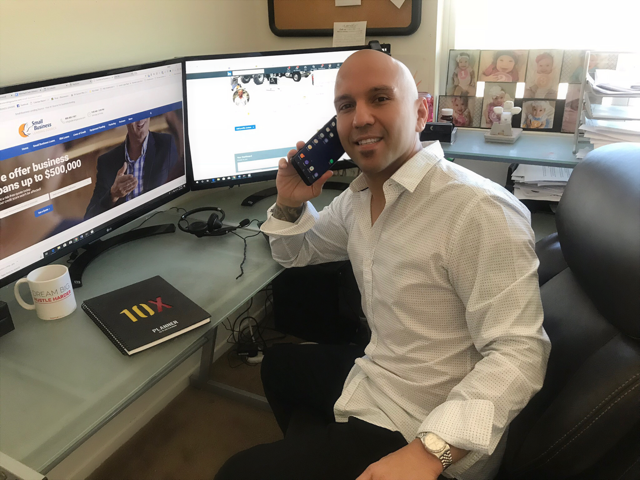 Title: CEO of Small Business Lending Source. A one-man shop with one full-time assistant and another assistant in San Diego, California.
Title: CEO of Small Business Lending Source. A one-man shop with one full-time assistant and another assistant in San Diego, California.
Years in the industry: 5
How he got into the industry:
I’ve always been an entrepreneur and I had a business that was going downhill. [In 2013,] I had a friend that was doing business loans and he told me that he had made $26,000 the month before, so I was like “What are you doing that’s bringing in so much money working for someone else?” And he said business loans. So I was like, “I need to check this out.” So I went and worked for the company he was working at for about 6 months. I learned how to sell the products and then went off and did my own thing. Now we do equipment leasing, business credit lines, SBA Express Loans and other products.
What were some of the challenges of starting your own business?
Initially, the biggest challenge was that I had only done merchant cash advance and not everyone is a good fit for merchant cash advance. So I had to learn about the other products, [which] is one thing that has helped me grow the business. Every year, I’ve seen about a 30 to 40% increase in revenue.
Also, marketing has changed a lot. I was kind of old school. I’d pick up the phone, start dialing, do direct mail. [But] since I’ve been in this business, I’ve learned a lot about internet marketing. I do a lot of marketing through Linkedin and Facebook, a lot of retargeting…I taught myself everything I needed to know about internet marketing.
His daily routine:
6/6:30 a.m. – I wake up. I make myself breakfast along with my daughter and get her ready for her daycare.
7:30 a.m. – I start work. I’m checking my emails, returning emails and calls.
9 a.m. – 12 p.m. – I’m doing outbound marketing. I dial through whatever leads came in.
1 p.m. – 3 p.m. – I try to close deals this time of the day.
3 p.m. – 5 p.m. – More marketing.
5 p.m. – 7 p.m. – I spend time with daughter.
7 p.m. – 9 p.m. – I go to the gym.
9:30 p.m. – Get back home.
10 p.m. – 12/1 a.m. – I’m working on marketing or trying to learn something new.
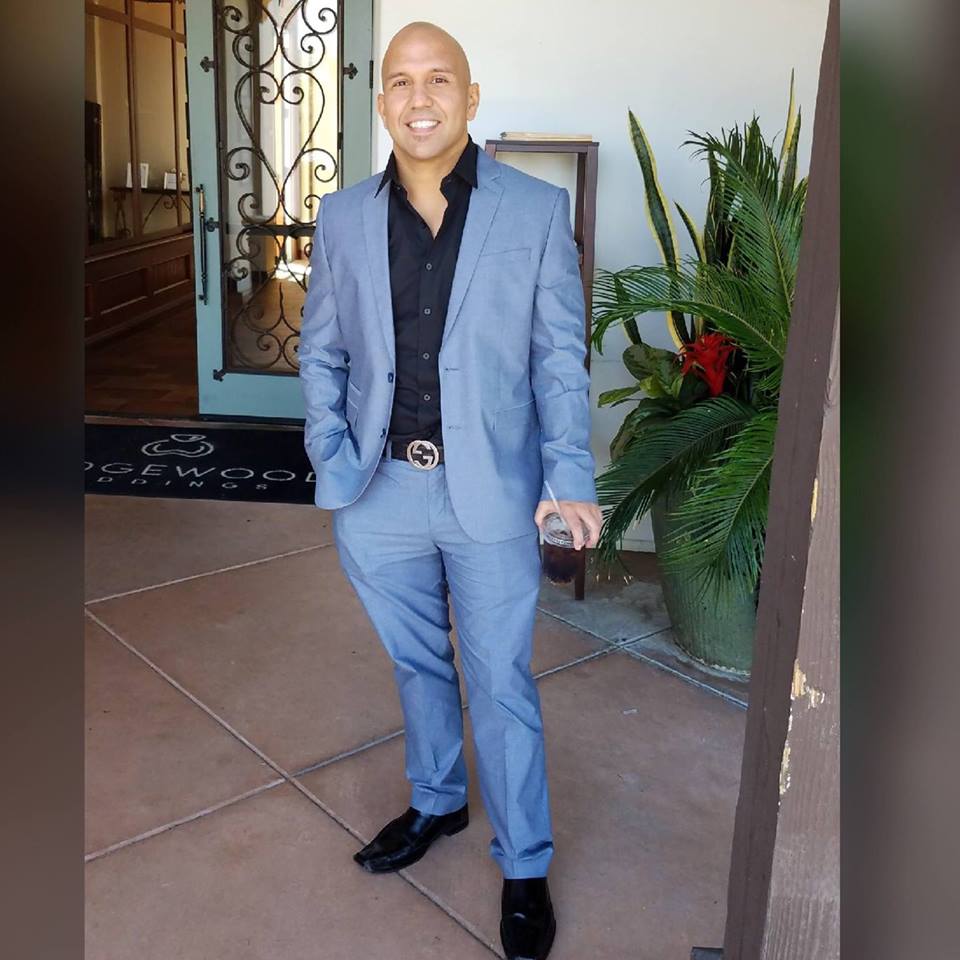 What he means by “marketing”:
What he means by “marketing”:
I do all my own posts, so I have to come up with the copywriting for LinkedIn for the next day. I have a certain strategy that I use, so I have to come up with the content for that everyday. And I’m regularly checking to to see how my strategy/posts are performing.
How his process works:
I give the client a call the first time a lead comes in. My assistant is more or less on the front end and she will follow up the 2nd, 3rd, 4th time. She’s collecting all the paperwork after that.
Then, once the offer comes in, I call the people back and then I’m closing the deals.
His monthly volume:
Last month we funded $750,000. I’m typically generating a good 300 leads a month. Of course, they’re not all qualified, but it’s a good amount.
His biggest deal:
It was an $850,000 deal and I got a $50,000 commission.
Tips for having a home office:
I have a specific area in my house where I work. It’s a loft upstairs and once I’m up there, I’m completely focused on the business. There’s no TV in there. If you’re going to work from home, you can’t have distractions. You have to be of the mindset that once I’m at my desk, there’s nothing else – no internet surfing. If you’re going to work from home, you have to have a designated space where everyone knows “If I’m in there and the door is closed, don’t bother me.”
His mindset:
Putting a plan in place and doing everything you have to do in order to get it done. There’s no procrastination. If I’m going to do something, it’s going to get done. If I don’t know how to do it, I’m going to find somebody that does or go on the internet and find the answer to my question.
Where he’ll be on Oct. 4th:
At deBanked CONNECT San Diego. He even got an Early Bird ticket!
The Broker: How Copelon Kirklin Became a Dealmaker
September 3, 2018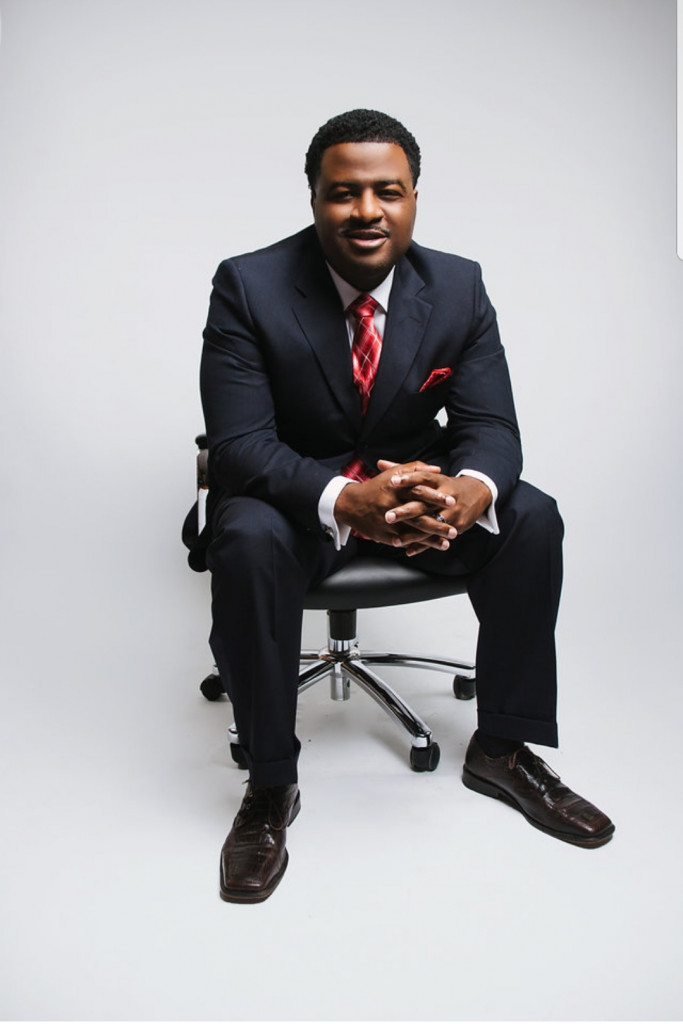 Title: President of KPC Group, one man broker shop.
Title: President of KPC Group, one man broker shop.
Location: Kenner, Louisiana. Fifteen minutes outside of New Orleans.
What’s your morning routine?
I wake up at 6. I get a quick breakfast. I check my emails and then on to phone calls.
What keeps you going throughout the day?
My gasoline is my family. They’re my coffee, my 5-hour energy. They’re my motivation because I know what I want to give them. I’ve been able to accomplish some things in this business and [be able to] provide some of things for them… So no coffee here. Just the family. That’s my fuel.
Biggest deal?
$2.5 million deal. It was an SBA loan and I had 1 point in it. So I made a $25,000 commission.
What are a few of your biggest challenges as a broker?
If I’m dealing directly with a merchant, at the beginning, the way they represent themselves on paper regarding their revenue – everything looks good. And then when the actual bank statements come through, it doesn’t match up. I mostly work with construction contractors. It’s a niche and it’s pretty simple. But it’s only simple if [merchants] don’t misrepresent their financials, if they’re telling the true story.
Also, I don’t mind working with brokers…it doesn’t matter if you’re in the deal 50-50 or you’re just passing me a deal of a friend…I pay 50% every time, because I want to foster more relationships and get more deals that way. The challenge is when the co-broker can’t let go of the client to let me deal with them. It’s when they want to be the go-between. When they want to communicate through me to the client and it just doesn’t work that way. I haven’t closed any deals when another broker tries to work that way.
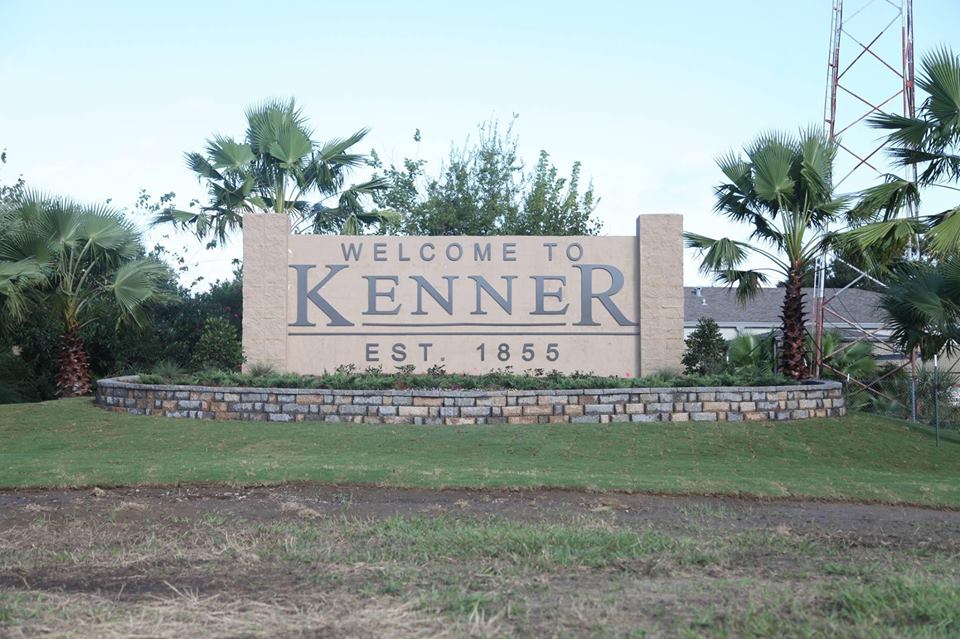 Could you tell me about your first deal?
Could you tell me about your first deal?
2014 was the first time I closed a deal in finance…and I only made $500. But I tell you, it was the best thing that happened to me because it let me know that it was possible. There was this one moment when I was really questioning “am I supposed to be doing this?” And I’ll never forget that day. I was sitting in my bed and I just had this look on my face and my wife asked me what was wrong and I told her “I don’t know if this is for me because I’ve been doing this for [a few] years and nothing’s happened yet.”
And to my surprise, she said “pick up that laptop, open it back up and you get back to work. It’s going to work out. You’re not doing this in vain.” And lo and behold, two weeks later, I closed that first deal at $500 [in commission], and the next week I closed two deals, one for $1,100 and one for $1,400. And I was just on my way from that point.
How did you learn to be a broker?
I learned from the internet. I found leads organically because I didn’t have any money for leads. LinkedIn was my best friend at the time and it’s still my go-to. It was where I learned that people are willing to do business with you without meeting you. I got hooked on it – developing my profile, adding to it, learning, making mistakes, chasing pipe dreams. [Those many months] before closing my first deal were just a lot of growing pains.
How do know when something isn’t real on LinkedIn?
It’s really about learning to do due diligence and not taking people at their word, even though you would love to. You check out their background. Do they just have a personal email address? That’s not always a killer, but it does help if they have a corporate email address if they’re telling you that they’re a lender. Learning that someone is actually a broker when they’re saying that they’re a lender. Checking Ripoff Report, seeing if [someone] has a website, learning to tighten my filter. In the beginning, you want it to be easy. You want to take people at their word. And I fell for [tricks]. But you have to do your homework.
The Broker: How Zach Ramirez Makes Deals Happen
August 17, 2018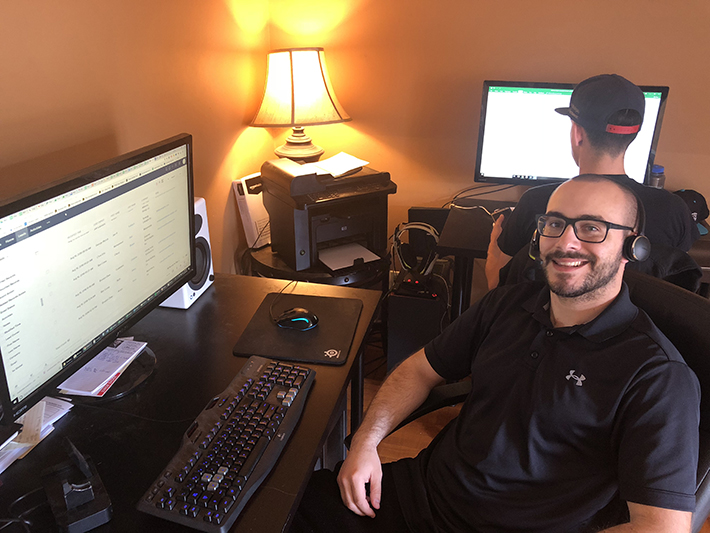 deBanked interviewed Zachary Ramirez to find out what makes a successful broker like him tick, how he does it, and what kinds of things he’s encountered along the way.
deBanked interviewed Zachary Ramirez to find out what makes a successful broker like him tick, how he does it, and what kinds of things he’s encountered along the way.
Title: Founder and Managing Director of ZR Consulting, LLC, a brokerage of 10 people in Orange County, California.
Years in the industry: 6
Age: 29
 Number of brokerage shops he’s started: Three. The first one he created failed after only about three deals, the second one, called Core Financial (that he got in early on with 2 other partners), grew to 27 brokers before it was acquired, and this one is only two months old and has already funded $1 million.
Number of brokerage shops he’s started: Three. The first one he created failed after only about three deals, the second one, called Core Financial (that he got in early on with 2 other partners), grew to 27 brokers before it was acquired, and this one is only two months old and has already funded $1 million.
His morning routine:
I get up at about 5:45.
I have my protein shake – banana, protein, coconut oil and whatever else I can find that seems healthy to me.
I get a cup of coffee.
I sit down at my desk and the first thing I do is look at all the leads that came in that night. Sometimes there’s as many as 80. Sometimes there’s as few as 20 or 25. I then distribute the leads to my sales team, so that as soon as they wake up, they have all their leads. After that, I focus on marketing and closing some of the bigger deals.
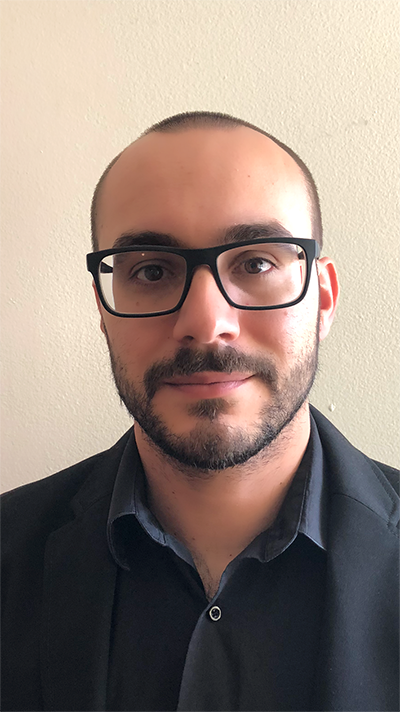 Ritual before he closes a deal:
Ritual before he closes a deal:
It’s a funny habit that makes me laugh but before I try to close a deal, I visualize myself closing the deal and I beat my chest. I walk around the office beating my chest like an ape, and it’s just hysterical. I get this big adrenaline rush right before I call the merchant. And when I call them, I’m just on fire. Whatever happens, I’m ready for it. And when I’m in that mode, I can’t lose a deal. It’s like impossible.
His first deal:
It was an auto repair shop that needed $75,000 in order to add three new bays for their repair shop. I think I funded it with OnDeck. It was a very smooth deal. My buddy brought it to me. He said the customer needs the money today. And we ended up funding it the same day. It was great.
I was 23 years old and that was the first time I had seen my business capture any revenue. Finally, after a month or two months of straight working, and not finding a single deal, I finally figured out the marketing a little bit and ended up funding that one. I remember we had 10 points in it, so we had $7,500. I was a single guy renting a room, and for me that was a good chunk of money.
What it taught him:
It helped me learn about expense management because that first broker shop I started failed. I lost everything on that shop. I only funded two or three deals and I ended up spending more money than I made. I was very humbled by this. I realized that being a broker isn’t as easy as people think.
What his best merchants have in common:
My favorite merchants understand why they qualify for what they qualify for. We have a deep rapport. I don’t just talk about business. I’ll talk about their family. I’ll talk about trends I see in their industry. I’ll help them understand their financial situation. And my best merchants are the ones that understand that I’m a source of information for them and I can provide them with valuable insights that they might not be aware of. Things that can help them. I’ll help them with marketing a lot…I say, ‘Look, if you talk to these people, they can do this marketing for you.’ And I do stuff like that because it’s increasing their revenue which helps their business. And that can help me do bigger loans for them.
 Largest deal:
Largest deal:
It was a $2 million deal. We had three points in it, so we made $60,000.
Favorite funders:
OnDeck. Also, I really like Fundworks, Quickbridge and Kalamata Capital Group. If someone doesn’t say OnDeck, then they’ve got a problem because OnDeck is amazing.
Why?
Because the consistency of their approvals, their competitive rates, the fast and seamless funding process. And especially, the online checkout. The online checkout is godly.





























